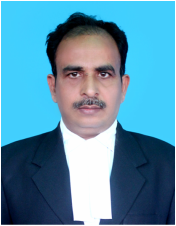Shivaratri is a festival in the tradition of Hinduisim, which many scholars regard as the oldest living religion. The word Hindu is derived from the Sanskrit term Sindhu (or Indus), which meant river. It referred to people living in the Indus valley in the Indian subcontinent. Hinduism has no founder, one universal reality (or god) known as Brahman, many gods and goddesses (sometimes referred to as devtas), and several scriptures. Hinduism also has no priesthood or hierarchical structure similar to that seen in some other religions, such as Christianity. Hindus acknowledge the authority of a wide variety of writings, but there is no single, uniform canon. The oldest of the Hindu writings are the Vedas. The word "veda" comes from the Sanskrit word for knowledge. The Vedas, which were compiled from ancient oral traditions, contain hymns, instructions, explanations, chants for sacrifices, magical formulas, and philosophy. Another set of sacred books includes the Great Epics, which illustrate Hindu faith in practice. The Epics include the Ramayana, the Mahabharata, and the Bhagavad Gita. The Hindu pantheon includes approximately thirty-three million gods. Some of these are held in higher esteem than others. Over all the gods, Hindus believe in one absolute high god or universal concept. This is Brahman. Although he is above all the gods, he is not worshipped in popular ceremonies because he is detached from the day to day affairs of the people. Brahman is impersonal. Lesser gods and goddesses (devtas) serve him. Because these are more intimately involved in the affairs of people, they are venerated as gods. The most honored god in Hinduism varies among the different Hindu sects. Although Hindu adherents practice their faith differently and venerate different deities, they share a similar view of reality and look back on a common history. Shivaratri is the main festival held in honor of Shiva (or Siva), the Hindu god of destruction and regeneration. According to Hindu teaching, this is the night on Shivaratri which Shiva danced the Tandav, his celestial dance of Creation, Preservation, and Destruction. Throughout India and in other countries where he is venerated, Hindus eat only once on the thirteenth day of Phalguna; after this, they fast in preparation for the Great Night of Shiva, as the festival is also known. It is the sacred duty of every worshipper to keep a vigil throughout the night and to worship him at midnight by offering leaves from the wood-apple or BEL TREE . There is an old Hindu saying that even an intelligent dog will not touch its food on this day. Huge gatherings take place in temples all over India on Shivaratri-even in rural areas, where the bells ring all night and people stay awake by chanting Shiva's name, singing songs about his glory, and recounting his legends. Special celebrations are held at the Shiva shrines in Tamil Nadu, Andhra Pradesh, and Uttar Pradesh, and hundreds of thousands of Hindus make the pilgrimage to Pashupatinath Temple in Katmandu, Nepal, for worship, feasting, and ritual bathing in the holy Bagmati River. In Port Louis, Mauritius, wooden arches covered with flowers are carried to the holy lake known as Grand Bassin, to get water with which the images of Shiva can be washed. A large number of fairs are also held on Shivaratri, and bathing in holy tanks or sacred rivers is a common activity. Members of all castes or divisions of Hindu society are allowed to participate in the worship of Shiva. While the wealthy perform elaborate rites that include expensive offerings to Shiva and substantial gifts to the poor, members of the lower castes must content themselves with pouring water on the ShivaLINGAM . The ceremonies surrounding Shivaratri are particularly popular with Hindu women, especially those wishing to become pregnant. Courtesy : http://ift.tt/2H2IWn9
via YouTube https://youtu.be/xLxXqQt1i3Y


 RSS Feed
RSS Feed

















